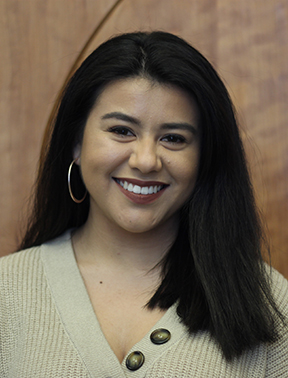It all started when history professor John Haas learned more about DACA students on campus. Haas was curious to know what would happen to the future of immigration, and chain migration.
He believes it’s important to have empathy for students and understand their world. That’s where he developed the idea for his creative project, an immigration documentary.
What first interested Haas in making a documentary was a video he watched about Big Ben National Park in Texas, not only did the scenery capture him, but also the idea of the current president wanting to put a big wall in the middle of it.
After learning more about the national park, he decided to visit the sight himself with his cinematographer Jim Legoy.
Legoy met Haas five years ago in Istanbul, Turkey and immediately liked Haas.
From there, Haas traveled to Mexico where he was fascinated about the process of entering and leaving the country.
“When you come back there’s nobody actually there, there’s somebody watching you from El Paso,” said Haas, “They asked if I was a U.S. citizen and why I was visiting.”
After seeing the scenery around the border, he thinks putting a wall is unnecessary.
He says people don’t stop and realize that adding a wall stops the water coming from the Rio Grande to be filtered.
His trip to Mexico was just the beginning.
After returning, he focused on understanding the world of a DACA recipients and the worries undocumented people go through.
“I think I have historical empathy as a teacher,” said Haas.
As a teacher, he wants to humanize people without papers. “I’m not worried about being deported or things happening to my family, but other people are,” he said.
Haas thinks regardless of someone’s political stance, they should have empathy for someone that left their family and home behind to live a better life, and that is what he is trying to do through his documentary.
Traveling and meeting people has change Haas’s perspective on life.
While traveling down to Tijuana he met a gentlemen that lived in Whittier who recently was deported due to marijuana possession, the man sleeps on the concrete floor with his schizophrenic brother.
It was hard for Haas to interview someone who was seeking asylum due to the fear of being caught.
There are many people in Nicaragua who are seeking asylum said Haas.
“Traveling to these places is scary, but it has changed the way I think. My heart goes out for them,” says Legoy.
When it comes to close-minded people, Legoy thinks it can be hard to change someone’s way of thinking, but it is possible.
“I come from a very conservative family, so I’ve had a firsthand experience,” Legoy said, “all I hope for is for my first hand experience to be an experience for others.” Legoy thinks if he can open minded so can others.
Haas knows he can’t please everybody with his work, but he hopes to teach everyone about his work.
He’s open to any students who would be interested to share their stories about immigration for his documentary.
Haas said his documentary has many stories and much information. “I’ve been really working hard on connecting the dots.” Haas knows he will talk about immigration but is trying to figure out which story to talk about.
Haas teaches six classes that he takes seriously and works on his projects on the weekends.
All his projects are self-funded, but he recently received a donation from the diversity department of Human Resources at Cerritos College.
He hopes to release a video of DACA recipients on the campus by the end of this semester in the science building. It’s open to everyone to come and learn about the college’s DACA program.









